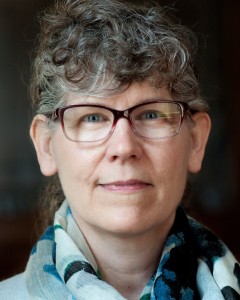The ‘moral’ response to school inequity
- likoau
- Aug 10, 2015
- 3 min read
When you start a conversation about the impact of high poverty schools on a child’s academic and social success, data doesn’t matter.
Not because there is no good data (there’s plenty of research to show that when almost every child in a school arrives way behind their middle class peers and lacking the experiences and supports we all need to learn, their chances are not very good), but because most of us look at poverty as a moral problem. And we evaluate that problem either as a social condition, over which we have little personal control, OR as the result of personal failure—and people who see poverty as failure do not believe socioeconomic integration or a surge in new resources will improve failing schools.
Call it what you will—a narrative, a paradigm, a personal philosophy. The way most of us look at poverty depends on something more powerful than data.
Mark Hare is a member of the GS4A leadership team
I’ve had more than my share of arguments over the years. I spent 30 years trying to convince people that there’s an important correlation between the percentage of very low-income students in a school and academic outcomes. And after I set out all the facts, someone at the table would invariably say, “I just don’t think poverty is the problem. It all comes down to the family.”
And that’s not an untrue rejoinder. If more families were stable, living on decent incomes, well-connected to educational, business, social and religious institutions, then, yes, the children from those families would be better off. It’s true, but so what? How does knowing that direct us to a solution?
But now that I’m mid-way through my 60s, I no longer care about winning those arguments. I care about change, and changing hearts. The research can guide us toward a solution to high-poverty schools, but it won’t change minds or hearts.
Jonathan Haidt, a psychologist and professor of ethical leadership at New York University, has written extensively on the psychology of morality. He cites several “moral foundations” that are often identified as politically “liberal” or “conservative” values. In fact, these foundations, he says, are better described as personality traits than political philosophies.
Last summer, Haidt was interviewed on National Public Radio’s On Being program by host Krista Tippett. Their conversation makes the research understandable and accessible.
In simplest terms, Haidt says, liberals and conservatives both value compassion and fairness. But while these two are the centerpieces of a liberal moral philosophy (care for the poor and others in need, and equality of opportunity in schooling, housing, jobs, etc.), they are often lower on the conservative values hierarchy. The more important moral values for the conservative personality, he says, are loyalty, authority and sanctity.
Very few of us are pure archetypes. We live along a continuum of these moral values. While some liberals, for example, might liken authority to authoritarianism, loyalty to “drinking the Kool-Aid,” and sanctity to religious fanaticism, most of us are somewhere in between. We can appreciate that authority is essential to social order, that loyalty can mean commitment to family or community, and that sanctity can mean working hard to improve one’s behavior as part of an lifelong quest to be a better, more responsible, human being.
The point is that much of what we commonly perceive as political debate is actually a clash of moral priorities that have little to do with policy matters and everything to do with how we see ourselves as human beings.
What this research says to me is that in advocating for socio-economically diverse schools, we must understand that while systemic change is necessary to promote real equality of opportunity, many, many parents will be far more attracted to schools that challenge their children to excel and take responsibility for their own educations. I think we can offer both, and I think we must.







Comments